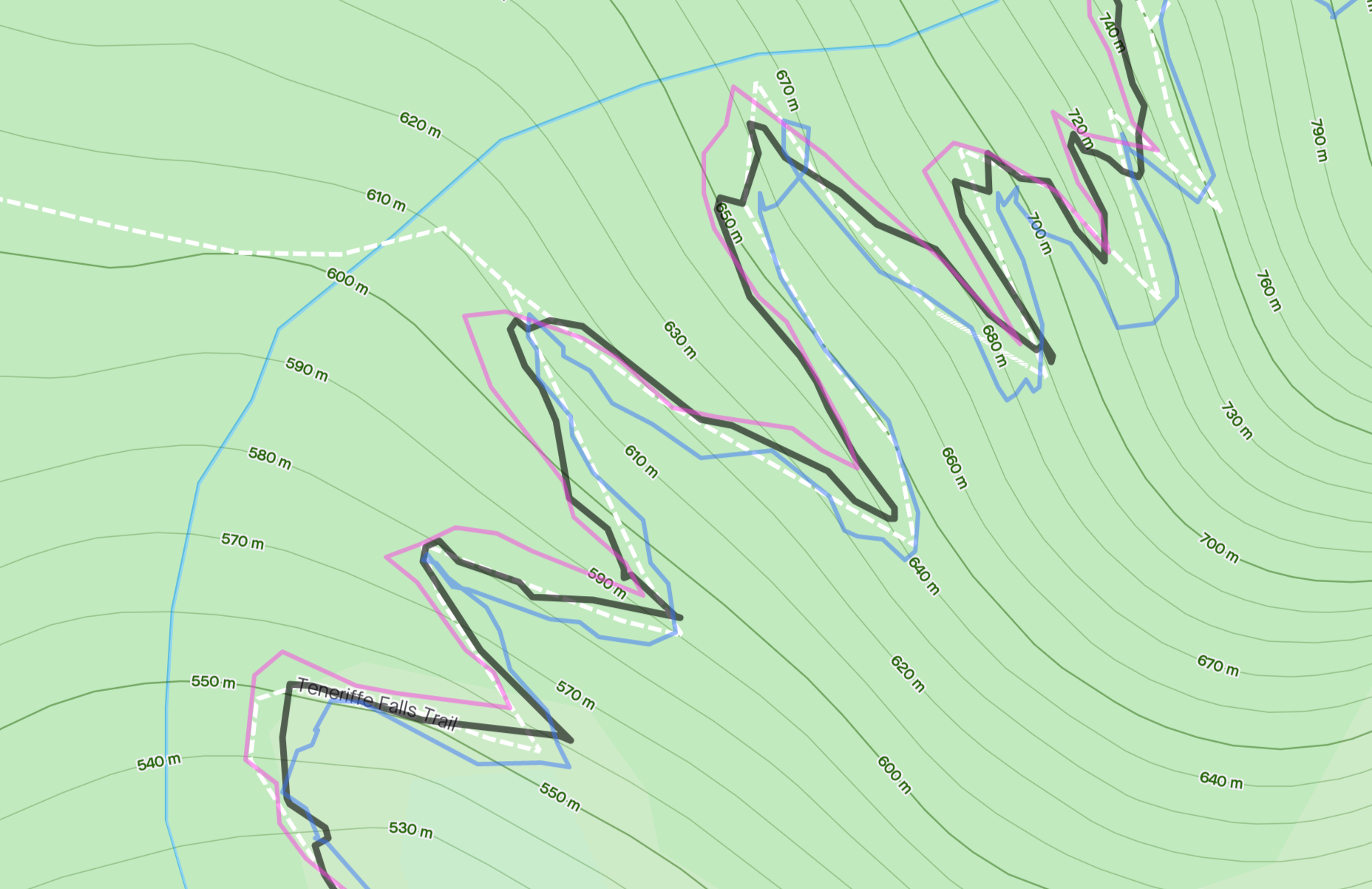-
Yes the track is aweful
-
@Dimitrios-Kanellopoulos said in Suunto 9 Baro vs. Garmin Fenix 5 vs. old Garmin FR 920 on tight switchbacks:
Yes the track is aweful
This is a very typical track for the local Pacific Northwest mountains, not worse than usual. This particular fragment is from a steep (reaching 40-50%) slope with dense evergreen tree coverage, but so are a lot of local trails. That is the reason Ambit series watches were so popular in this area. Ambits did noticable better than other watches.
-
@Dimitrios-Kanellopoulos said in Suunto 9 Baro vs. Garmin Fenix 5 vs. old Garmin FR 920 on tight switchbacks:
you can pull the raw data
@Dimitrios-Kanellopoulos is it done automatically or did we need to do something to get “raw data”? and what exactly is “raw data”?
BR
-
@silentvoyager you use GPS only around here still? Seems to me like GLONASS works at least a little bit better.
-
@suzzlo said in Suunto 9 Baro vs. Garmin Fenix 5 vs. old Garmin FR 920 on tight switchbacks:
@Dimitrios-Kanellopoulos said in Suunto 9 Baro vs. Garmin Fenix 5 vs. old Garmin FR 920 on tight switchbacks:
you can pull the raw data
@Dimitrios-Kanellopoulos is it done automatically or did we need to do something to get “raw data”? and what exactly is “raw data”?
BR
https://forum.suunto.com/topic/520/additional-external-tools/236
Where to find raw data
And some nice future stuff eventually
https://forum.suunto.com/topic/3490/quantified-self-io-the-topic-for-qs-discussions/80 -
@stromdiddily said in Suunto 9 Baro vs. Garmin Fenix 5 vs. old Garmin FR 920 on tight switchbacks:
@silentvoyager you use GPS only around here still? Seems to me like GLONASS works at least a little bit better.
I have yet to try Glonass. I’ve read that Glonass may be hit or miss. It might help in some cases but occasionally it may also cause large errors.
-
@silentvoyager
I would really like to know how the 3 available systems work independently from each other.
Hope Suunto gives us a toggle to switch them on/off separately -
@TELE-HO there’s plenty of research papers on the topic. For simple users like us, there is no advantage of using GLONASS or Galileo on their own, unless you want reduced accuracy. If you play a bit with coverage and positioning errors (find something online) you’ll see that without GPS they are pretty terrible.
-
@isazi
but only beceause that’s what is today, doesn’t mean it is still like that tomorrow? -
@TELE-HO for the foreseeable future, GLONASS and Galileo (obviously we are not talking about military use here) are to enhance GPS. Will there be a day in which they’ll work on their own? Probably, when more satellites will be on-line and working according to specs, and more frequencies will be used, but that’s beyond the hardware and life span of the watches we are wearing today.
-
-
I always use Galileo can you try that ?
-
@TELE-HO extract from https://berthub.eu/articles/posts/galileo-accident/
“The current status of Galileo is not that great. There are 26 satellites in space, 2 of them in botched (elliptical) orbits, 2 of them unavailable, 1 unavailable until further notice. This makes for 21 functional satellites, which is less than the “healthy” number of 24. Anything below 24 causes gaps in coverage, or at least, areas where the positioning accuracy will not be good enough.”
You can play, in real-time, with the coverage of different GNSS systems on http://galmon.eu
-

